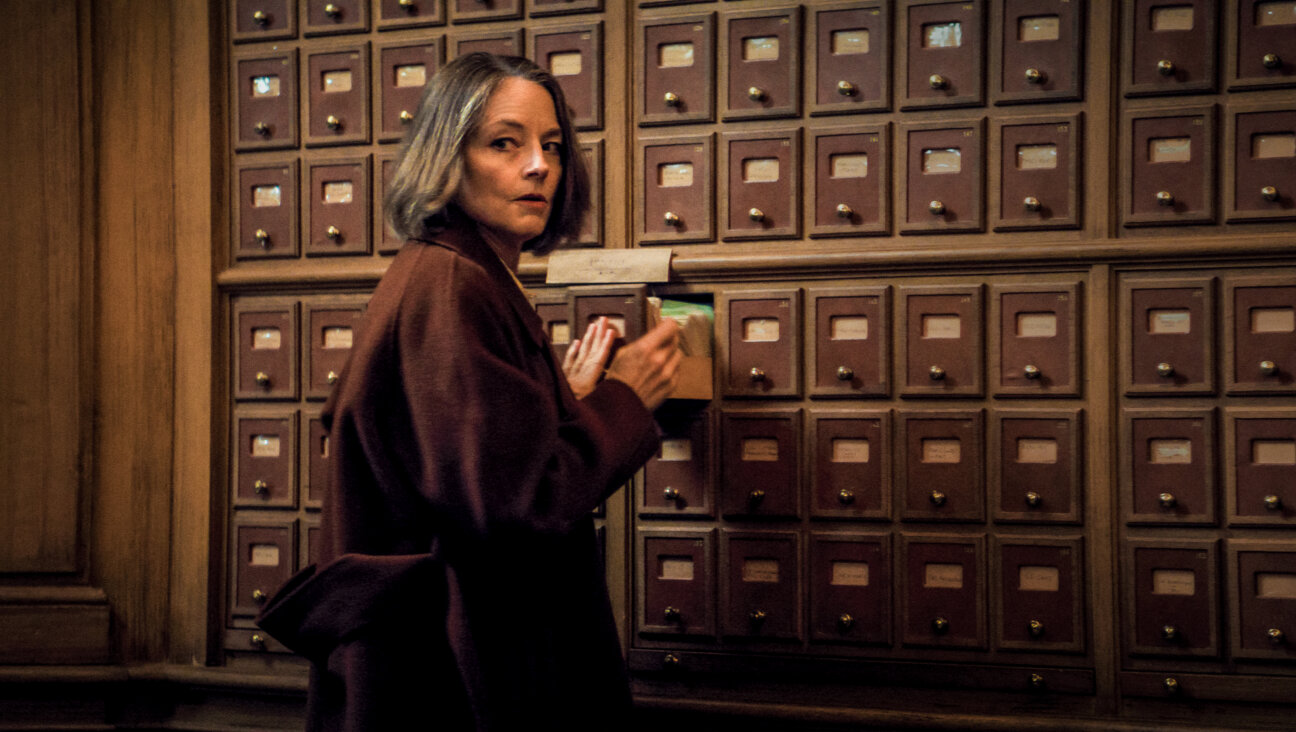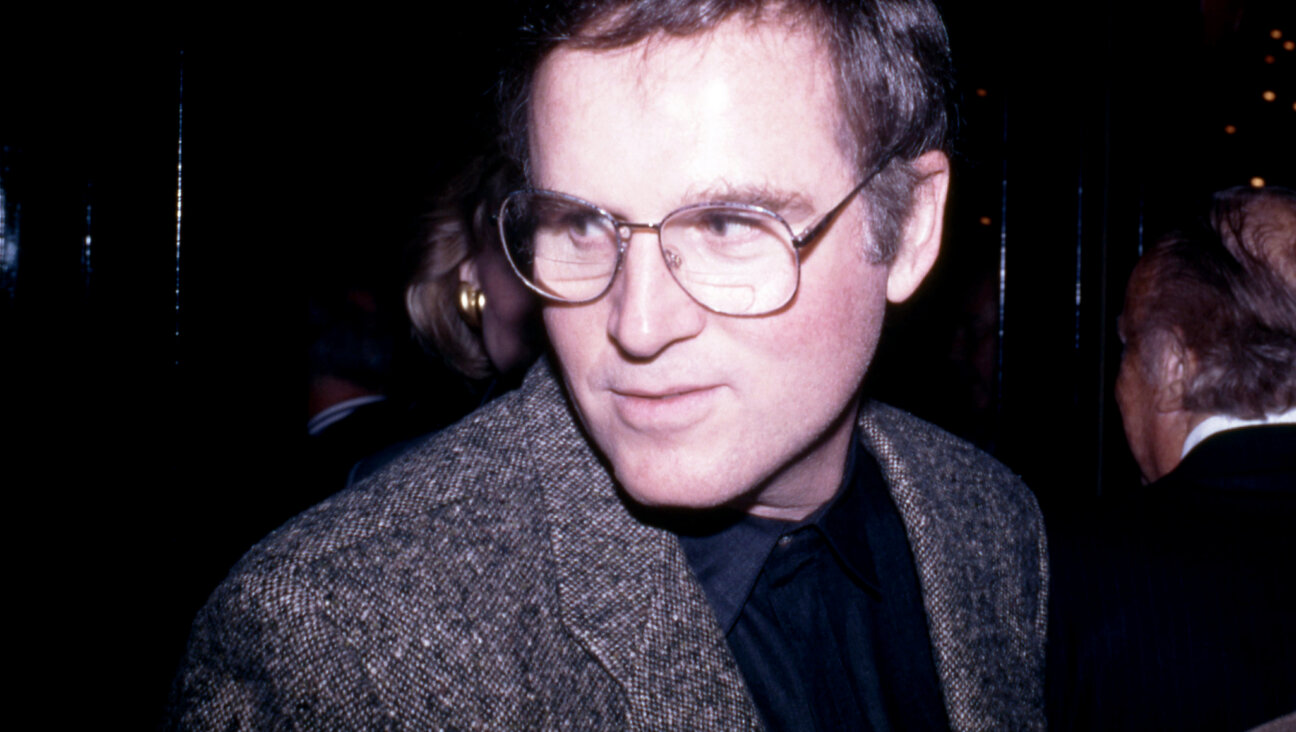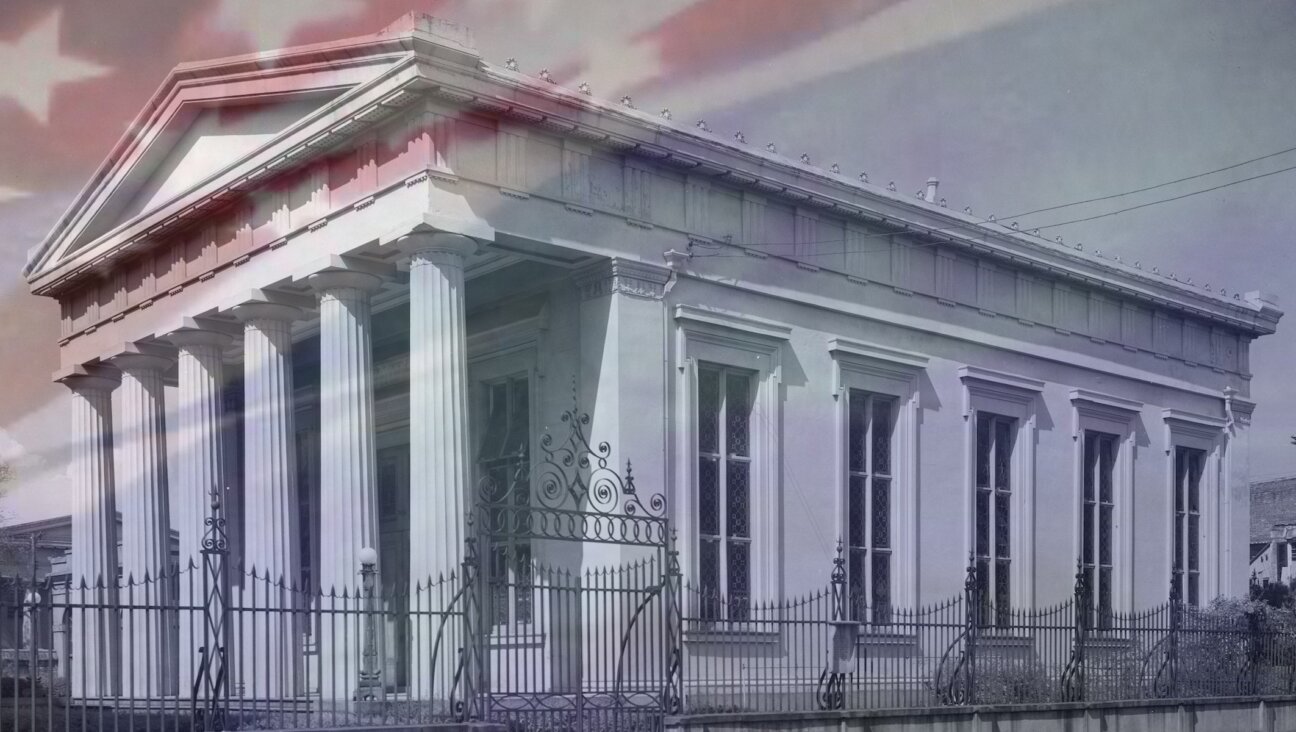Düsseldorf’s Mayor Accused of Canceling Max Stern Show Over Fears Of Restitution

Graphic by Angelie Zaslavsky
Last month, when Düsseldorf mayor Thomas Geisel cancelled an exhibition about Jewish art dealer Max Stern, who was persecuted by the Nazis, his decision was met with outcry and confusion. According to The New York Times, the show, “Max Stern — From Düsseldorf to Montreal,” was set to open in February at the city’s Stadtmuseum, which had spent three years preparing the exhibit.
Geisel’s reasons for the surprising cancellation were nonspecific. His statement, included in the Times article, referenced “current demands for information and restitution in German museums in connection with the Galerie Max Stern.” His office later issued a second statement, saying, “countless works are linked to the art dealer Max Stern” and “every work requires a nuanced individual analysis.”
Because he was Jewish, Stern was forbidden by the Nazi government to work as an art dealer in 1935. In 1937, he was compelled to sell off the contents of his gallery. In 1938, he became a refugee from Germany, living first in British and Canadian detention camps in, then making a permanent home in Montreal, where he became the director of the Dominion Gallery. Stern’s Gallery in Düsseldorf, started by his father, had specialized in local painters from the 19th century, also handling some contemporary art and paintings by old masters, including pieces by Otto Dix and Jan Breughel the Elder.
In 2002, the Max Stern Art Restitution Project was launched by Montreal’s Concordia and McGill Universities and Hebrew University in Jerusalem, institutions to which Stern left most of his estate. It is attempting to track down about 400 works that Stern was forced to part with, of which it has to date recovered 16. Critics have implied by the mayor’s decision was due in part to a desire to prevent restitution claims from gathering momentum.
“I’ve never heard of an exhibition being cancelled on such short notice for any reason, let alone because of restitution claims,” Concordia University’s Clarence Epstein, the director of the Max Stern Art Restitution Project, told the Montreal Gazette. “The exhibition was not centered on restitution, but on Max Stern. His family was effaced from Düsseldorf records because of the persecution of Jews. Now the city has decided to efface this man once again from their history.”
Professor Frank Chalk, a colleague of Epstein’s at Concordia, told the Gazette, “There are very influential people in Germany who don’t want to see art returned to Jews. There’s an element of anti-Semitism in this. But we never suspected the mayor could be vulnerable to this kind of pressure.”
Jewish leaders roundly criticized the cancellation of the exhibition. In a letter to Mayor Geisel mentioned by The Times, World Jewish Congress president Ronald Lauder called his justification absurd. Nissim Tal, director general of the Haifa Museums, told The Times, “We believe the Max Stern story should not be eliminated.”
The cancellation comes as part of the collection of Cornelius Gurlitt, the son of Nazi-era art dealer Hildebrand Gurlitt, is on exhibit in neighboring Bonn, about an hour’s drive from Düsseldorf. One-quarter Jewish himself, the elder Gurlitt collaborated with the Nazi government, selling confiscated art on behalf of Joseph Goebbel’s Culture Ministry. After the war, he rehabilitated his name and in 1948 was named director of the Düsseldorf Kunstverein, the city’s arts association.
The German government was criticized for lack of transparency in its handling of the Gurlitt art hoard, which many say contain pieces looted from Jewish collectors. A years-long research process, which is still underway and has to date cost $7.6 million, has so far deemed only six out of the1,400-odd works in Gurlitt’s collection to be worthy of restitution.
In addition to many Jewish voices, Germany’s Culture Minister also condemned the cancellation of the exhibition. Hagen Philipp Wolf, a spokesman for culture minister Monika Grütters called the decision “beyond regrettable.”
Mayor Geisel told the Times by phone that he was worried about the paintings identified for restitution by the Max Stern Art Restitution Project. Some of those works are owned currently by the Stadtmuseum or the city of Düsseldorf. One painting, “The Artist’s Children” by Wilhelm von Schadow, formerly hung in the mayor’s office, and remains in the city’s possession. The city has denied that it was looted.
Geisel did express regret for the timing of the announcement. “I should have had an eye on it earlier,” he said.
Daniel Witkin is the Forward’s culture intern. Reach him at [email protected], or over Twitter @dzwitkin
















